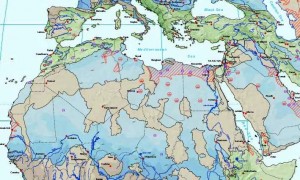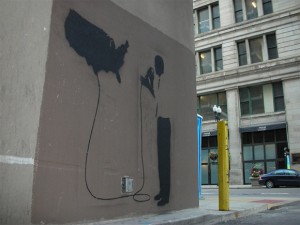UNESCO has unveiled this excellent atlas of hidden water around the world, in the service of providing a “legal framework for nations to manage water resources.
The increasing reliance on aquifer groundwater – because there is more of it and it tends to be less contaminated by industrial run-off – has been called the “groundwater revolution”.
But it is a revolution with worrying environmental consequences. In many parts of the world, around the Mediterranean for example, but also in the US and the Middle East, water tables are falling and aquifers are being infiltrated by seawater as agricultural practices pump water out faster than it can be replenished by rain.
This blue aspect of green weaves the scientific and political challenges into the sustainability conundrum, which is largely why it is a conundrum in the first place. After all, if we did not have limits and constraints to work within, there would be little reason to be worried about conservation or preservation. The prospect of significant resource limitations has usually meant one thing – war. UNESCO is attempting to head this off and good for them, especially because I’m not so sure that the prospect of significant resource limitations doesn’t still mean one thing. I mean we’re camped out in Mesopotamia for some reason, right?
But it’s utility of limits that I’d like to focus on; without them, we do things, like suburban sprawl, that are of course not sustainable resource-wise but they are bad for many other reasons. They are wasteful on a host of levels, from time and space dimensions to the spiritual realm in that we actually feel bad (depression, anyone?) from living in them. Go ahead and dispute this but there’s even a point of diminishing returns in which the suburban model of wanton nihilism is useful in the creation of counter-correctives like punk rock. I mean, really.
I’m just kidding and mean those dudes no ill will – they were just easy to find and their record label has a funny name. But limitations can be good and they are definitely green; working within them is an encapsulation of living against the rabid idea of freedom and exploitation toward every thing, person and place we see. Space and time constraints were indicative of every civilization that has come before us, and we should begin to realize some shared affinities with the best of the these, before we are overcome by our similarities to the most famous.
And while we’re at it, we should start looking for some of those hidden RR tracks that are buried all around us.




